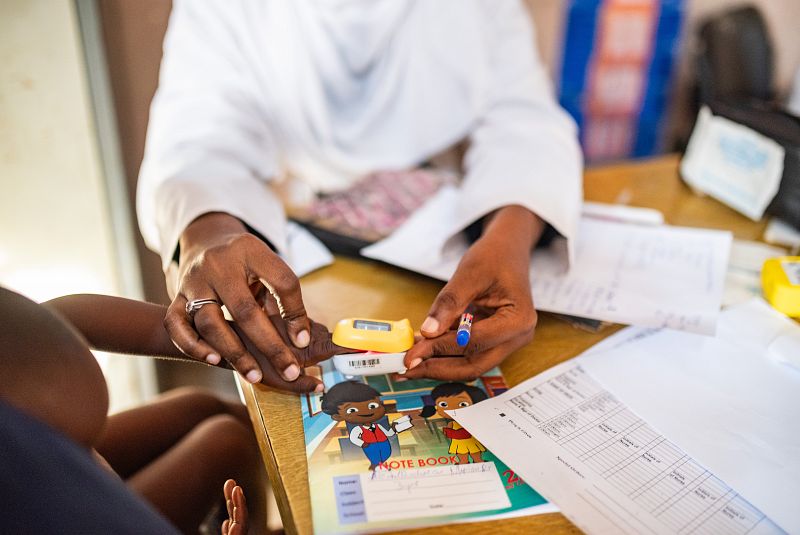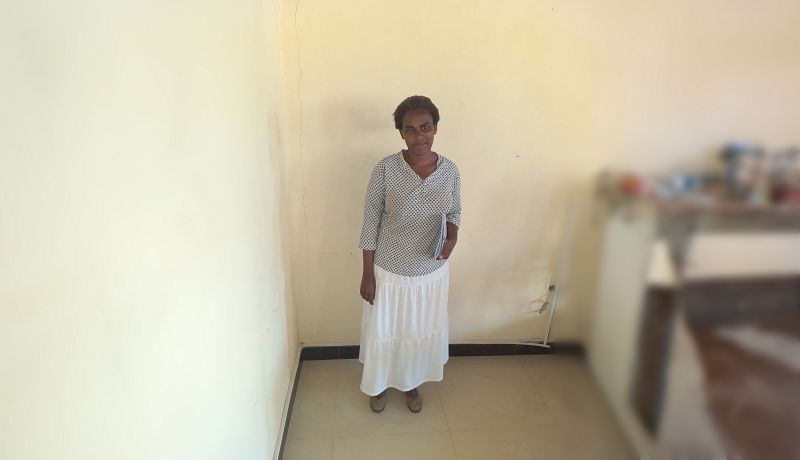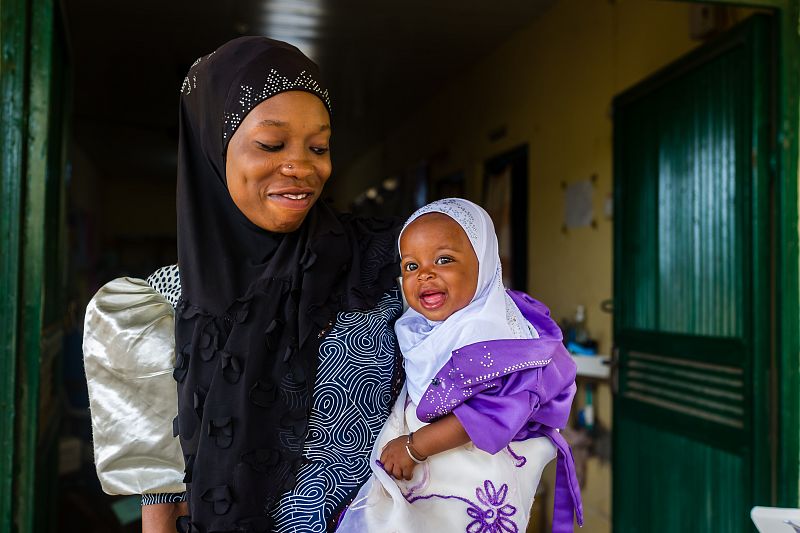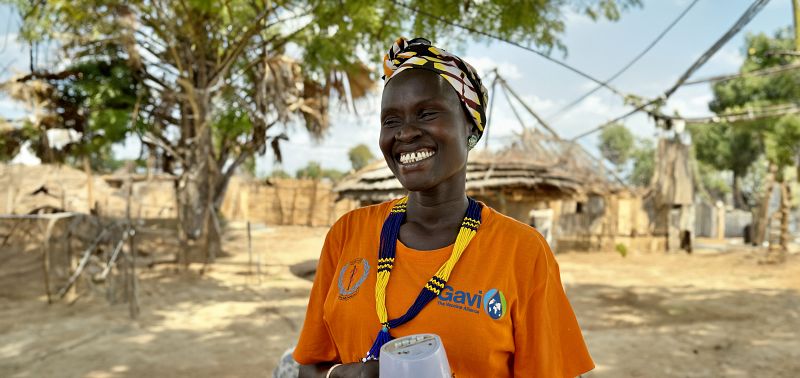Publications
Explore our publications to find useful evidence, lessons and recommendations from our work across Africa and Asia
Type
- Advocacy and positioning
- Advocacy briefs
- Advocacy reports
- Annual reviews
- Brochures
- Capacity statements
- Position statements
- Conference
- Briefing notes
- Posters
- Presentations
- Guidance and toolkits
- Guidance
- Training materials
- Learning
- Case studies
- Infographics
- Insight briefs
- Learning briefs
- Learning papers
- Newsletters
- Research and Technical
- Journal articles
- Project briefs
- Project reports
- Research briefs
- Synopses
- Technical briefs
Keyword
- ASTMH
- Advocacy
- COVID-19
- Capacity development
- Case management
- Case study
- Chemoprevention
- Child survival
- Climate
- Community delivery
- Costing and economic impact evaluation
- Data-informed decision-making
- Diagnosis
- Digital health
- Elimination
- Evidence generation
- Gender
- Genetic modification
- Health financing
- Health system strengthening
- Learning
- Logistics
- MNCH
- Malaria in pregnancy
- Monitoring and evaluation
- PMC
- Philanthropy
- Policy development
- Private sector
- Quality improvement
- Research
- Resistance management
- SBC
- SDGs
- SMC
- Scaled implementation
- Scholarships
- Surveillance
- Treatment
- Universal health coverage
- Urbanisation
- Vaccines
- Vector control
- Webinars
- iCCM
Diseases
Country
Language
Reset all search optionsCurrent search filters (75 results match ALL terms):
2018
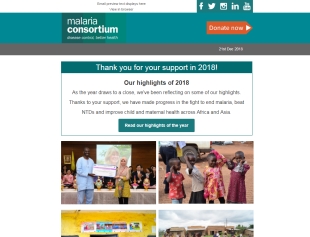 21/12/2018
Newsletter
21/12/2018
Newsletter
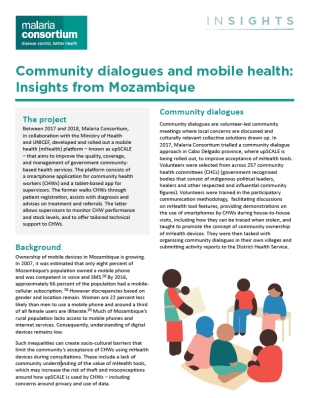 13/12/2018
Insight brief
13/12/2018
Insight brief
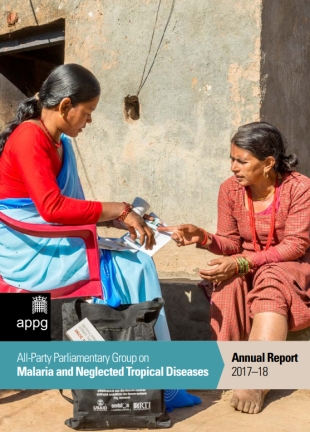 13/12/2018
Annual review
13/12/2018
Annual review
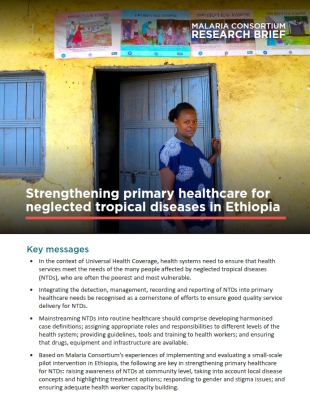 12/12/2018
Research brief
12/12/2018
Research brief
 11/12/2018
Annual review
11/12/2018
Annual review
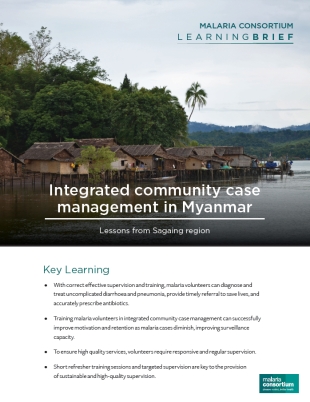 29/11/2018
Learning brief
29/11/2018
Learning brief
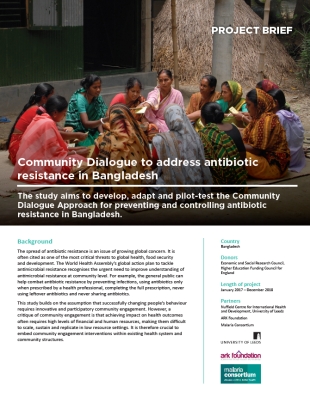 16/11/2018
Project brief
16/11/2018
Project brief
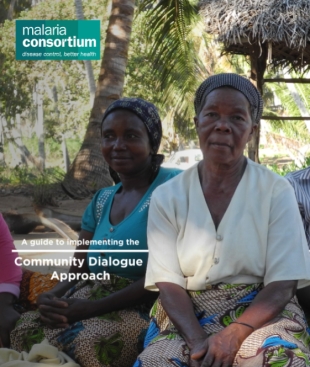 16/11/2018
Training materials
16/11/2018
Training materials
 12/11/2018
Journal article
12/11/2018
Journal article
 06/11/2018
Journal article
06/11/2018
Journal article
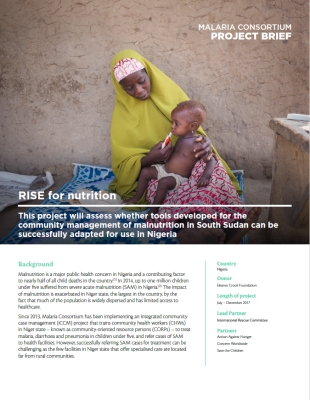 30/10/2018
Project brief
30/10/2018
Project brief
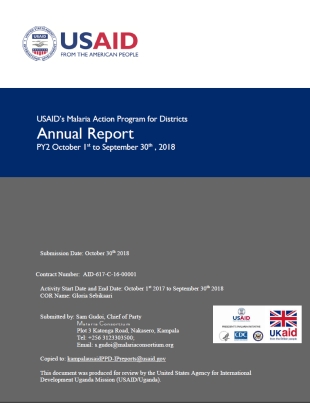 30/10/2018
Project report
30/10/2018
Project report
 26/10/2018
Journal article
26/10/2018
Journal article
 25/10/2018
Journal article
25/10/2018
Journal article
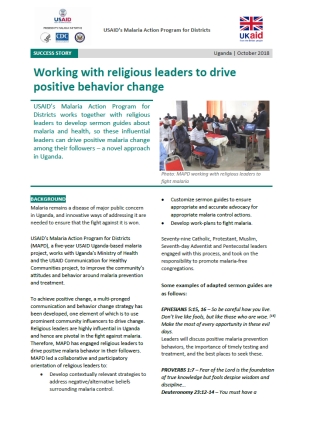 15/10/2018
Case study
15/10/2018
Case study
 10/10/2018
Journal article
10/10/2018
Journal article
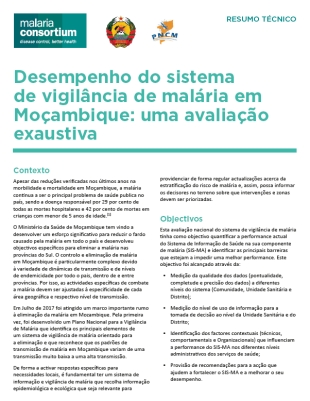 08/10/2018
Technical brief
08/10/2018
Technical brief
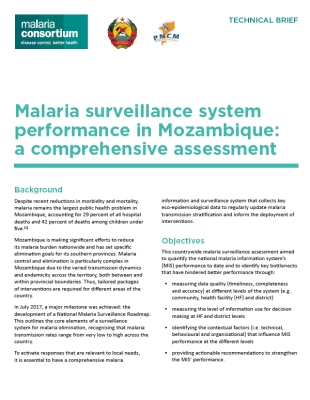 02/10/2018
Technical brief
02/10/2018
Technical brief
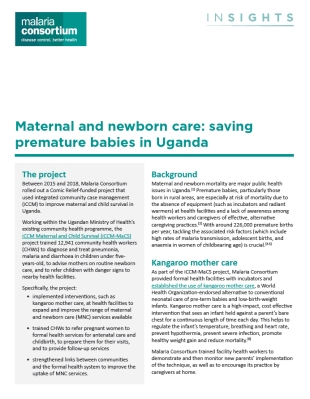 24/09/2018
Insight brief
24/09/2018
Insight brief
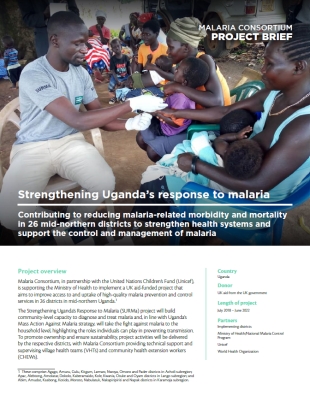 24/09/2018
Project brief
24/09/2018
Project brief
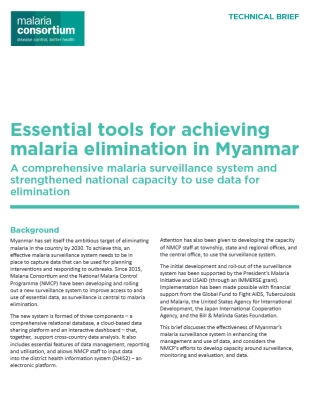 21/09/2018
Technical brief
21/09/2018
Technical brief
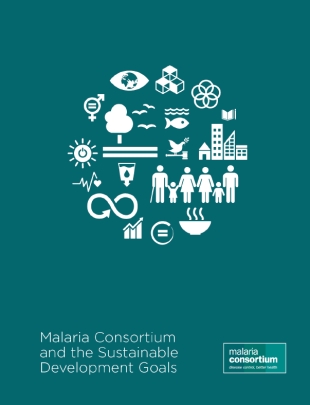 21/09/2018
Advocacy brief
21/09/2018
Advocacy brief
 17/09/2018
Journal article
17/09/2018
Journal article
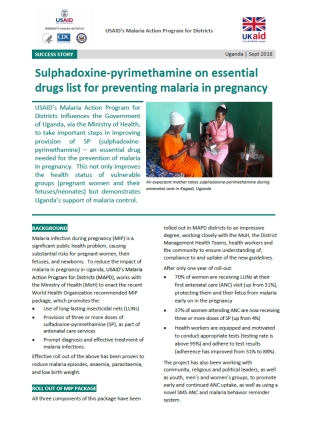 15/09/2018
Case study
15/09/2018
Case study
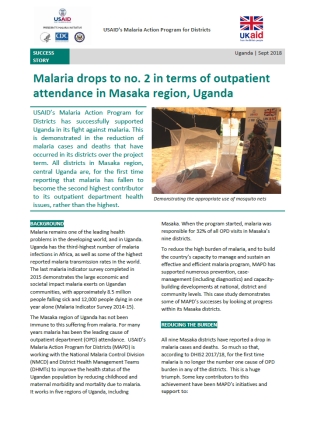 12/09/2018
Case study
12/09/2018
Case study
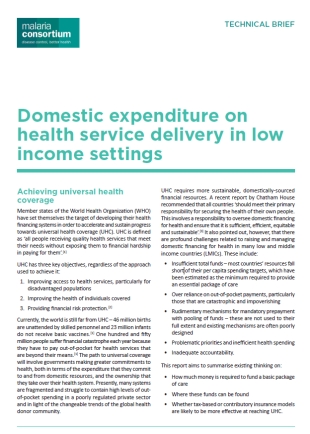 10/09/2018
Technical brief
10/09/2018
Technical brief
 06/09/2018
Journal article
06/09/2018
Journal article
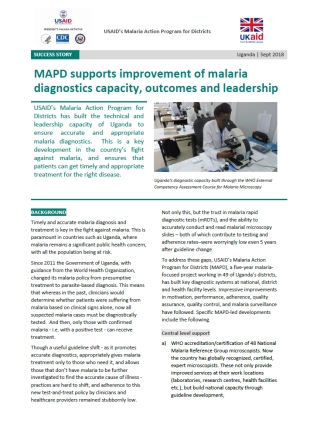 05/09/2018
Case study
05/09/2018
Case study
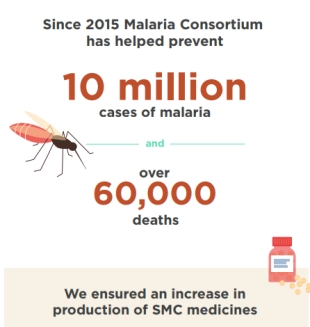 30/08/2018
Infographic
30/08/2018
Infographic
 17/08/2018
Journal article
17/08/2018
Journal article
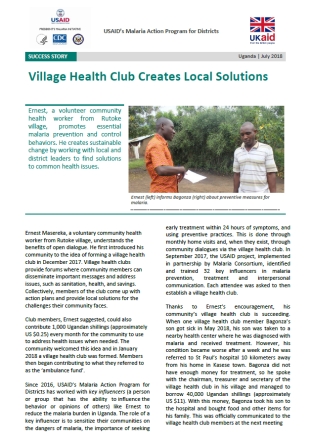 23/07/2018
Case study
23/07/2018
Case study
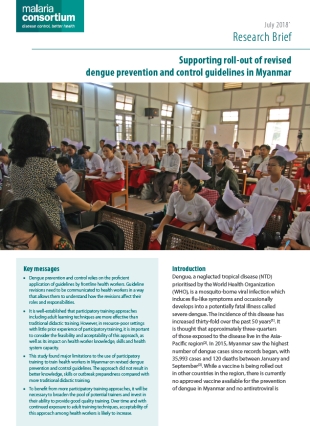 20/07/2018
Research brief
20/07/2018
Research brief
 19/07/2018
Journal article
19/07/2018
Journal article
 29/06/2018
Journal article
29/06/2018
Journal article
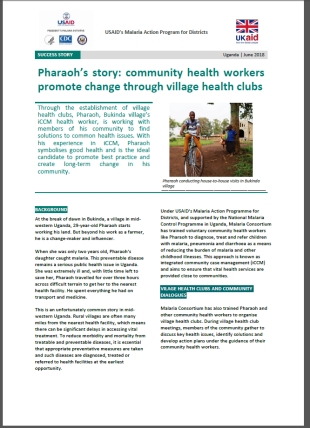 14/06/2018
Case study
14/06/2018
Case study
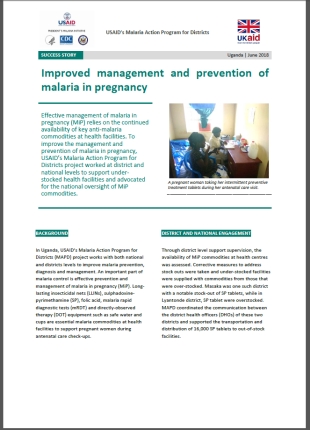 14/06/2018
Case study
14/06/2018
Case study
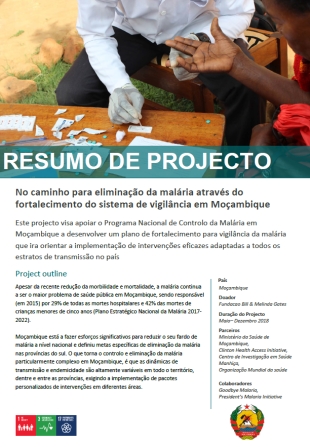 08/06/2018
Project brief
08/06/2018
Project brief
 07/06/2018
Project brief
07/06/2018
Project brief
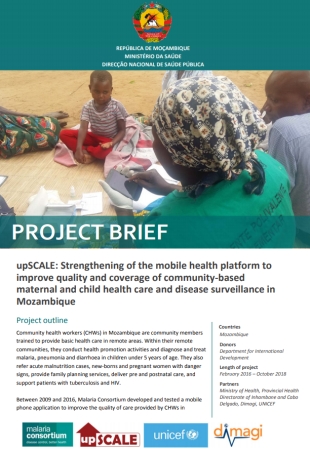 15/05/2018
Project brief
15/05/2018
Project brief
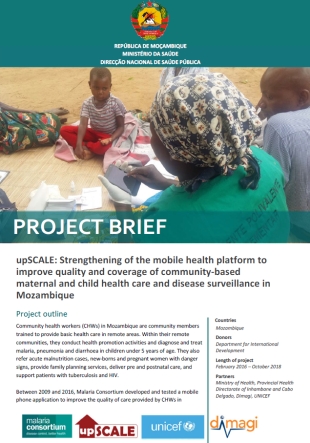 15/05/2018
Project brief
15/05/2018
Project brief
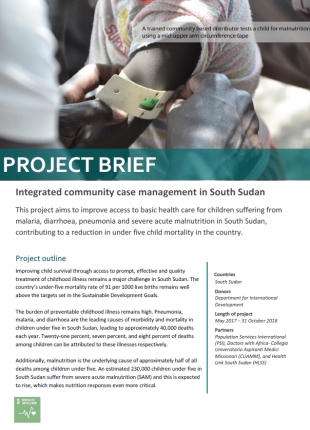 03/05/2018
Project brief
03/05/2018
Project brief
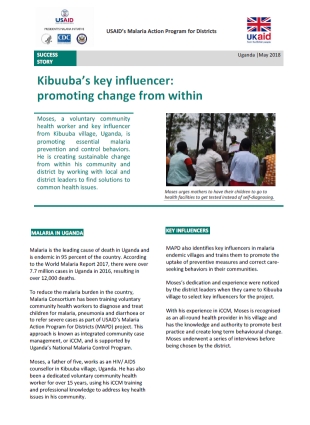 02/05/2018
Case study
02/05/2018
Case study
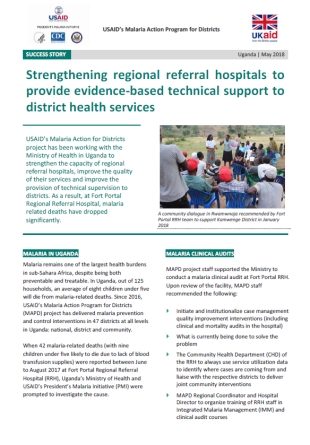 02/05/2018
Case study
02/05/2018
Case study
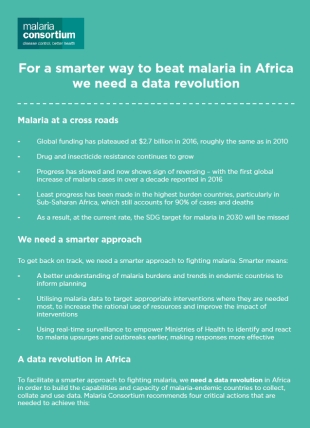 23/04/2018
Advocacy brief
23/04/2018
Advocacy brief
 12/04/2018
Journal article
12/04/2018
Journal article
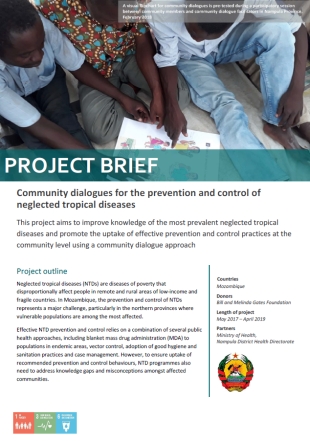 04/04/2018
Project brief
04/04/2018
Project brief
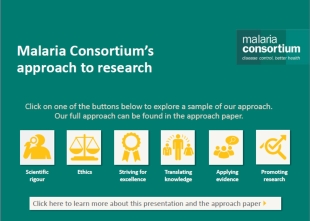 04/04/2018
Research brief
04/04/2018
Research brief
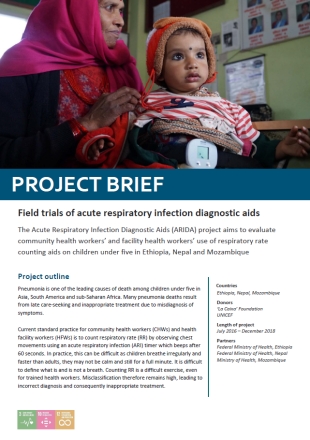 29/03/2018
Project brief
29/03/2018
Project brief
 22/03/2018
Journal article
22/03/2018
Journal article
 14/03/2018
Journal article
14/03/2018
Journal article
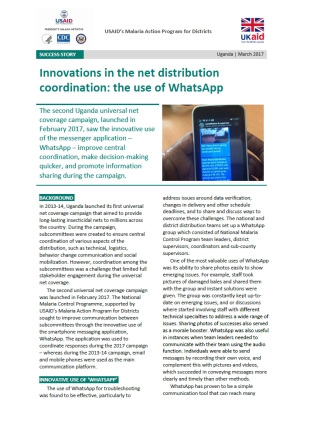 10/03/2018
Case study
10/03/2018
Case study
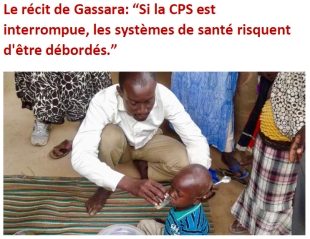 06/03/2018
Case study
06/03/2018
Case study
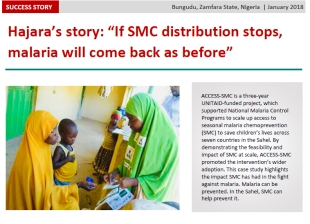 06/03/2018
Case study
06/03/2018
Case study
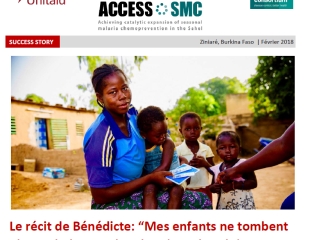 05/03/2018
Case study
05/03/2018
Case study
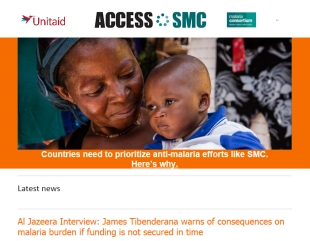 28/02/2018
Newsletter
28/02/2018
Newsletter
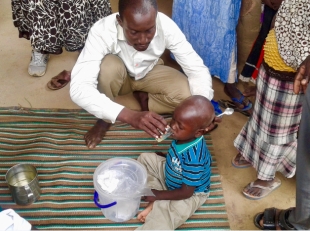 27/02/2018
Case study
27/02/2018
Case study
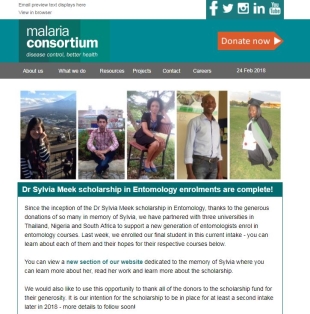 24/02/2018
Newsletter
24/02/2018
Newsletter
 16/02/2018
Journal article
16/02/2018
Journal article
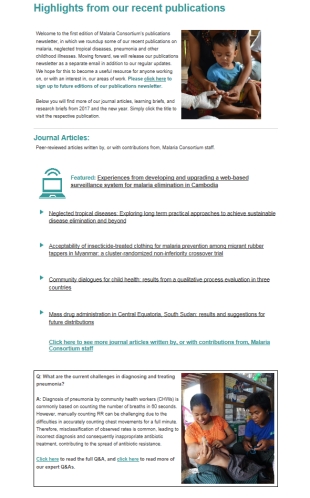 12/02/2018
Newsletter
12/02/2018
Newsletter
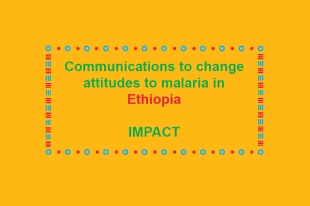 08/02/2018
Infographic
08/02/2018
Infographic
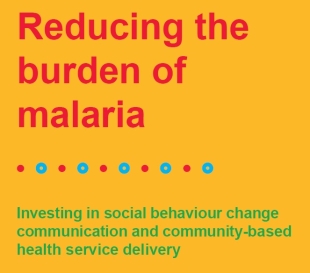 08/02/2018
Learning brief
08/02/2018
Learning brief
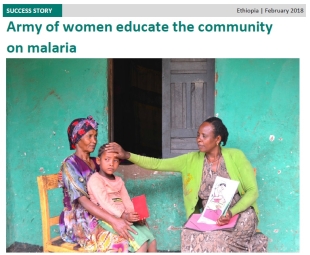 08/02/2018
Case study
08/02/2018
Case study
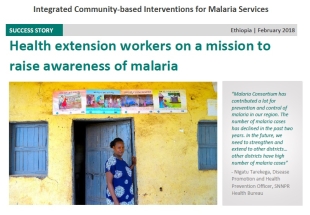 08/02/2018
Case study
08/02/2018
Case study
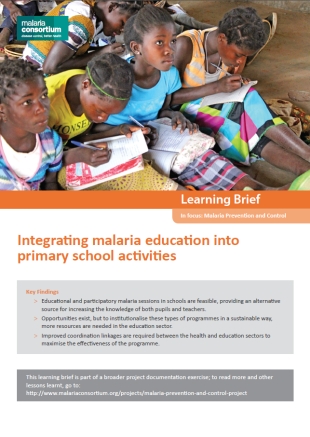 07/02/2018
Learning brief
07/02/2018
Learning brief
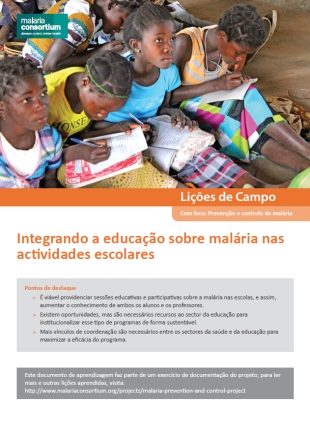 07/02/2018
Learning brief
07/02/2018
Learning brief
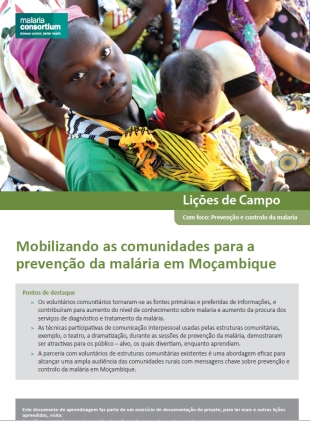 07/02/2018
Learning brief
07/02/2018
Learning brief
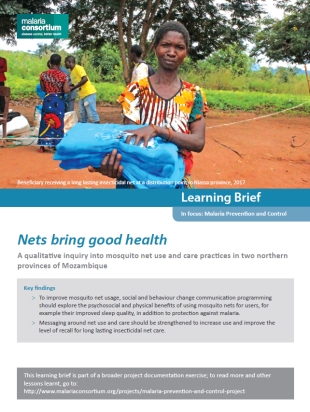 07/02/2018
Learning brief
07/02/2018
Learning brief
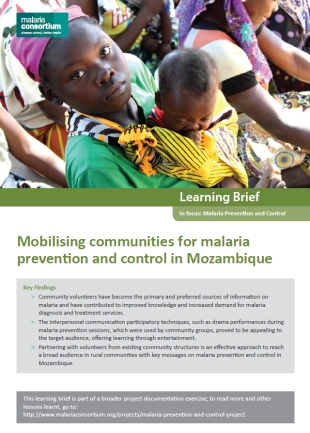 07/02/2018
Learning brief
07/02/2018
Learning brief
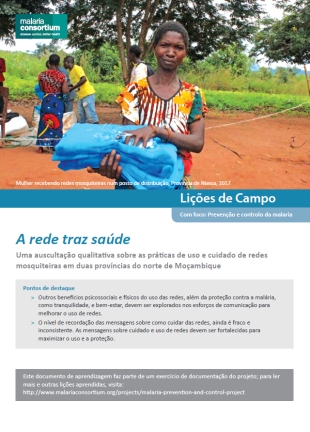 07/02/2018
Learning brief
07/02/2018
Learning brief
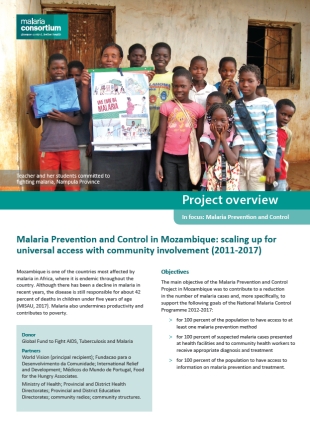 07/02/2018
Project report
07/02/2018
Project report
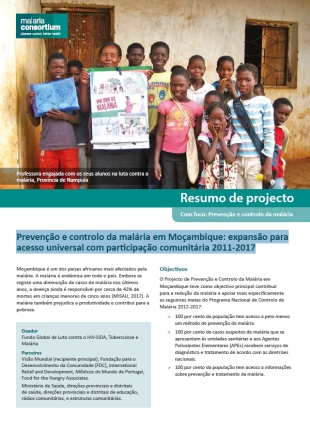 07/02/2018
Project report
07/02/2018
Project report
 06/02/2018
Journal article
06/02/2018
Journal article
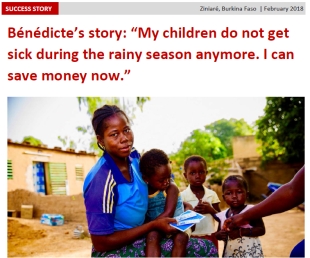 02/02/2018
Case study
02/02/2018
Case study
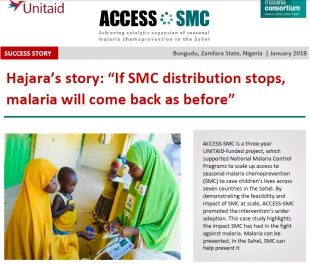 29/01/2018
Case study
29/01/2018
Case study
 06/01/2018
Journal article
06/01/2018
Journal article
2018
 21/12/2018
Newsletter
21/12/2018
Newsletter
End of year newsletter 2018
This newsletter showcases Malaria Consortium's highlights of 2018. 21/12/2018This newsletter showcases Malaria Consortium's highlights of 2018.
 13/12/2018
Insight brief
13/12/2018
Insight brief
Community dialogues and mobile health: Insights from Mozambique
While ownership of mobile devices in Mozambique is growing fast, discrepancies based on gender and location remain. The socio-cultural barriers such inequalities create may limit the community’s acceptance of health… 13/12/2018While ownership of mobile devices in Mozambique is growing fast, discrepancies based on gender and location remain. The socio-cultural barriers such inequalities create may limit the community’s acceptance of health workers using mobile devices during consultations. In 2017, Malaria Consortium trialled…
 13/12/2018
Annual review
13/12/2018
Annual review
Annual report 2017–2018: All-Party Parliamentary Group on Malaria and Neglected Tropical Diseases
The All-Party Parliamentary Group on Malaria and Neglected Tropical Diseases (APPMG) provides a forum for exploring issues pertaining to the fight against malaria and neglected tropical diseases (NTDs). Keeping malaria… 13/12/2018The All-Party Parliamentary Group on Malaria and Neglected Tropical Diseases (APPMG) provides a forum for exploring issues pertaining to the fight against malaria and neglected tropical diseases (NTDs). Keeping malaria and NTDs high on the political agenda is crucial to…
 12/12/2018
Research brief
12/12/2018
Research brief
Strengthening primary healthcare for neglected tropical diseases in Ethiopia
Neglected tropical diseases (NTDs) affect more than a billion people in tropical and subtropical conditions. NTDs are 20 diverse diseases of poverty and have historically received less global attention than… 12/12/2018Neglected tropical diseases (NTDs) affect more than a billion people in tropical and subtropical conditions. NTDs are 20 diverse diseases of poverty and have historically received less global attention than high-profile 'killer diseases' such as HIV/AIDS, tuberculosis or malaria. Nevertheless,…
 11/12/2018
Annual review
11/12/2018
Annual review
Trustees' report and financial statements for the year to 31 March 2018
Malaria Consortium's Trustees present their report and the audited financial statements for the year which ended 31 March 2018. 11/12/2018Malaria Consortium's Trustees present their report and the audited financial statements for the year which ended 31 March 2018.
 29/11/2018
Learning brief
29/11/2018
Learning brief
iCCM in Myanmar: Lessons from Sagaing region
From June 2016 to June 2017, Malaria Consortium implemented a pilot project that integrated and scaled up Myanmar's two community case management components to ensure the health system has the… 29/11/2018From June 2016 to June 2017, Malaria Consortium implemented a pilot project that integrated and scaled up Myanmar's two community case management components to ensure the health system has the capacity to respond to all major childhood illnesses. Malaria volunteers were…
 16/11/2018
Project brief
16/11/2018
Project brief
Community dialogue to address antibiotic resistance in Bangladesh
The spread of antibiotic resistance is an issue of growing global concern. It is often cited as one of the most critical threats to global health, food security and development.… 16/11/2018The spread of antibiotic resistance is an issue of growing global concern. It is often cited as one of the most critical threats to global health, food security and development. This study built on the assumption that successfully changing people’s…
 16/11/2018
Training materials
16/11/2018
Training materials
A guide to implementing the community dialogue approach
This guide is intended for health programme implementers who want to help communities make healthy choices. 16/11/2018This guide is intended for health programme implementers who want to help communities make healthy choices.
 12/11/2018
Journal article
12/11/2018
Journal article
Comparative efficacy of artemether-lumefantrine and dihydroartemisinin-piperaquine for the treatment of uncomplicated malaria in Ugandan children
In Uganda, artemether-lumefantrine (AL) and dihydroartemisinin-piperaquine (DHA-PQ) showed excellent treatment efficacy for uncomplicated malaria in prior trials. Because resistance to artemisinins and piperaquine is increasing in southeast Asia and the… 12/11/2018In Uganda, artemether-lumefantrine (AL) and dihydroartemisinin-piperaquine (DHA-PQ) showed excellent treatment efficacy for uncomplicated malaria in prior trials. Because resistance to artemisinins and piperaquine is increasing in southeast Asia and the prevalence of Plasmodium falciparum polymorphisms associated with resistance has changed,…
 06/11/2018
Journal article
06/11/2018
Journal article
Immediate assessment of performance of medical laboratory scientists following a 10-day malaria microscopy training programme in Nigeria
Background Rapid and precise diagnosis of malaria is an essential element in effective case management and control of malaria. Malaria microscopy is used as the gold standard for malaria diagnosis, however… 06/11/2018Background Rapid and precise diagnosis of malaria is an essential element in effective case management and control of malaria. Malaria microscopy is used as the gold standard for malaria diagnosis, however results remain poor as positivity rate in Nigeria is consistently…
 30/10/2018
Project brief
30/10/2018
Project brief
RISE for Nutrition
Malnutrition is a major public health concern in Nigeria and a contributing factor to nearly half of all child deaths in the country. The impact of malnutrition is exacerbated in… 30/10/2018Malnutrition is a major public health concern in Nigeria and a contributing factor to nearly half of all child deaths in the country. The impact of malnutrition is exacerbated in Niger state, the largest in the country, as much of…
 30/10/2018
Project report
30/10/2018
Project report
USAID Malaria Action Program for Districts: Year 2 report
During its second year, the project contributed to reducing new malaria infections, increased access to treatment and reduced death. Read the Year 2 report in full... 30/10/2018During its second year, the project contributed to reducing new malaria infections, increased access to treatment and reduced death. Read the Year 2 report in full...
 26/10/2018
Journal article
26/10/2018
Journal article
Effect of environmental variables and kdr resistance genotype on survival probability and infection rates in Anopheles gambiae (s.s)
BACKGROUND: Environmental factors, especially ambient temperature and relative humidity affect both mosquitoes and malaria parasites. The early part of sporogony is most sensitive and is affected by high temperatures and temperature… 26/10/2018BACKGROUND: Environmental factors, especially ambient temperature and relative humidity affect both mosquitoes and malaria parasites. The early part of sporogony is most sensitive and is affected by high temperatures and temperature fluctuation immediately following ingestion of an infectious blood meal. The…
 25/10/2018
Journal article
25/10/2018
Journal article
Performance, Acceptability, and Usability of Respiratory Rate Timers and Pulse Oximeters When Used by Frontline Health Workers to Detect Symptoms of Pneumonia in Sub-Saharan Africa and Southeast Asia: Protocol for a Two-Phase, Multisite, Mixed-Methods Trial
BACKGROUND:Pneumonia is one of the leading causes of death in children aged under 5 years in both sub-Saharan Africa and Southeast Asia. The current diagnostic criterion for pneumonia is based… 25/10/2018BACKGROUND:Pneumonia is one of the leading causes of death in children aged under 5 years in both sub-Saharan Africa and Southeast Asia. The current diagnostic criterion for pneumonia is based on the increased respiratory rate (RR) in children with cough…
 15/10/2018
Case study
15/10/2018
Case study
Working with religious leaders to drive positive behavior change
USAID’s Malaria Action Program for Districts works together with religious leaders to develop sermon guides about malaria and health, so these influential leaders can drive positive malaria change among their… 15/10/2018USAID’s Malaria Action Program for Districts works together with religious leaders to develop sermon guides about malaria and health, so these influential leaders can drive positive malaria change among their followers – a novel approach in Uganda...
 10/10/2018
Journal article
10/10/2018
Journal article
Digital Technologies for Health Workforce Development in Low- and Middle-Income Countries: A Scoping Review
The collection of journal articles, systematic reviews, and reports published over the last decade that attest to the potential of digital technologies to achieve health workforce improvements across all aspects… 10/10/2018The collection of journal articles, systematic reviews, and reports published over the last decade that attest to the potential of digital technologies to achieve health workforce improvements across all aspects of the health system is vast. As a capacity-building mechanism,…
 08/10/2018
Technical brief
08/10/2018
Technical brief
Desempenho do sistema de vigilância de malária em Moçambique: uma avaliação exaustiva
08/10/2018 02/10/2018
Technical brief
02/10/2018
Technical brief
Malaria surveillance system performance in Mozambique: A comprehensive assessment
Despite recent reductions in morbidity and mortality, malaria remains the largest public health problem in Mozambique, accounting for 29 percent of all hospital deaths and 42 percent of deaths among… 02/10/2018Despite recent reductions in morbidity and mortality, malaria remains the largest public health problem in Mozambique, accounting for 29 percent of all hospital deaths and 42 percent of deaths among children under five. This brief summarises findings from a comprehensive…
 24/09/2018
Insight brief
24/09/2018
Insight brief
Maternal and newborn care: Saving premature babies in Uganda
As part of the Integrated Community Case Management-Maternal and Child Survival (iCCM-MaCS) project, Malaria Consortium provided formal health facilities in Uganda with incubators and established the use of kangaroo mother… 24/09/2018As part of the Integrated Community Case Management-Maternal and Child Survival (iCCM-MaCS) project, Malaria Consortium provided formal health facilities in Uganda with incubators and established the use of kangaroo mother care — a World Health Organization-endorsed alternative to conventional neonatal…
 24/09/2018
Project brief
24/09/2018
Project brief
Strengthening Uganda's response to malaria
The Strengthening Uganda’s Response to Malaria (SURMa) project aims to improve access to and uptake of high-quality malaria prevention and control services. Malaria Consortium, in partnership with Unicef, is supporting… 24/09/2018The Strengthening Uganda’s Response to Malaria (SURMa) project aims to improve access to and uptake of high-quality malaria prevention and control services. Malaria Consortium, in partnership with Unicef, is supporting the Ministry of Health to implement the project, funded by…
 21/09/2018
Technical brief
21/09/2018
Technical brief
Essential tools for achieving malaria elimination in Myanmar
This brief discusses the effectiveness of Myanmar’s malaria surveillance system in enhancing the management and use of data. It also considers the National Malaria Control Programme's efforts to develop capacity… 21/09/2018This brief discusses the effectiveness of Myanmar’s malaria surveillance system in enhancing the management and use of data. It also considers the National Malaria Control Programme's efforts to develop capacity around surveillance, and monitoring and evaluation.
 21/09/2018
Advocacy brief
21/09/2018
Advocacy brief
Malaria Consortium and the Sustainable Development Goals
This brochure highlights some of the key ways in which Malaria Consortium is contributing to the Sustainable Development Goals and illustrates the importance of using a multifaceted approach to improve… 21/09/2018This brochure highlights some of the key ways in which Malaria Consortium is contributing to the Sustainable Development Goals and illustrates the importance of using a multifaceted approach to improve health outcomes globally.
 17/09/2018
Journal article
17/09/2018
Journal article
Management and Follow-up Practices of Children with Unclassified Fever in Rural Ethiopia: Experiences of Health Extension Workers and Caregivers
Different health-care management guidelines by the World Health Organization exist to help health workers in resource-limited settings treat patients. However, for children with unclassified fever and no danger signs, management… 17/09/2018Different health-care management guidelines by the World Health Organization exist to help health workers in resource-limited settings treat patients. However, for children with unclassified fever and no danger signs, management guidelines are less clear and follow-up recommendations differ. Both a…
 15/09/2018
Case study
15/09/2018
Case study
Sulphadoxine-pyrimethamine on essential drugs list for preventing malaria in pregnancy
USAID’s Malaria Action Program for Districts influences the Government of Uganda, via the Ministry of Health, to take important steps in improving provision of SP (sulphadoxine-pyrimethamine) – an essential drug… 15/09/2018USAID’s Malaria Action Program for Districts influences the Government of Uganda, via the Ministry of Health, to take important steps in improving provision of SP (sulphadoxine-pyrimethamine) – an essential drug needed for the prevention of malaria in pregnancy...
 12/09/2018
Case study
12/09/2018
Case study
Malaria drops to no. 2 in terms of outpatient attendance in Masaka region, Uganda
All districts in Masaka region, central Uganda are, for the first time reporting that malaria has fallen to become the second highest contributor to its outpatient department health issues, rather… 12/09/2018All districts in Masaka region, central Uganda are, for the first time reporting that malaria has fallen to become the second highest contributor to its outpatient department health issues, rather than the highest...
 10/09/2018
Technical brief
10/09/2018
Technical brief
Domestic expenditure on health service delivery in low-income settings
To accelerate progress towards universal health coverage (UHC), member states of the World Health Organization (WHO) have agreed to develop further their health financing systems. UHC is defined as ‘all… 10/09/2018To accelerate progress towards universal health coverage (UHC), member states of the World Health Organization (WHO) have agreed to develop further their health financing systems. UHC is defined as ‘all people receiving quality health services that meet their needs without…
 06/09/2018
Journal article
06/09/2018
Journal article
Improving health worker performance through text messaging: A mixed-methods evaluation of a pilot intervention designed to increase coverage of intermittent preventive treatment of malaria in pregnancy in West Nile, Uganda
Poor health worker performance is a well-documented obstacle to quality service provision. Due to the increasingly widespread availability of mobile devices, mobile health (mHealth) has received growing attention as a… 06/09/2018Poor health worker performance is a well-documented obstacle to quality service provision. Due to the increasingly widespread availability of mobile devices, mobile health (mHealth) has received growing attention as a service improvement tool. This pilot study explored feasibility, acceptability and…
 05/09/2018
Case study
05/09/2018
Case study
MAPD supports improvement of malaria diagnostics capacity, outcomes and leadership
USAID’s Malaria Action Program for Districts has built the technical and leadership capacity of Uganda to ensure accurate and appropriate malaria diagnostics... 05/09/2018USAID’s Malaria Action Program for Districts has built the technical and leadership capacity of Uganda to ensure accurate and appropriate malaria diagnostics...
 30/08/2018
Infographic
30/08/2018
Infographic
Impact: Malaria Consortium and seasonal malaria chemoprevention
Malaria Consortium has been distributing preventive treatments to children under five across the Sahel region to protect them from malaria during the past four rainy seasons. Case-control studies have found… 30/08/2018Malaria Consortium has been distributing preventive treatments to children under five across the Sahel region to protect them from malaria during the past four rainy seasons. Case-control studies have found that one treatment course of seasonal malaria chemoprevention (SMC) per…
 17/08/2018
Journal article
17/08/2018
Journal article
Human and Simian Malaria in the Greater Mekong Subregion and Challenges for Elimination
In recent years malaria initiatives have increasingly shifted from malaria control to a focus on achieving malaria elimination in the Southeast Asia region. However, this region experiences unique challenges in… 17/08/2018In recent years malaria initiatives have increasingly shifted from malaria control to a focus on achieving malaria elimination in the Southeast Asia region. However, this region experiences unique challenges in this transition due to its distinctive malariaecosystem (mainly related to…
 23/07/2018
Case study
23/07/2018
Case study
Village health club creates local solutions
Since 2016, USAID’s Malaria Action Program for Districts (MAPD) has been working with key influencers to reduce the malaria burden in Uganda. One of them is Ernest, a volunteer community… 23/07/2018Since 2016, USAID’s Malaria Action Program for Districts (MAPD) has been working with key influencers to reduce the malaria burden in Uganda. One of them is Ernest, a volunteer community health worker from Rutoke village who is promoting essential malaria…
 20/07/2018
Research brief
20/07/2018
Research brief
Supporting roll-out of revised dengue prevention and control guidelines in Myanmar
While clear and concise dengue prevention and control guidelines are necessary, it is also crucial that implementers are trained on how these affect their roles and responsibilities. This study compares… 20/07/2018While clear and concise dengue prevention and control guidelines are necessary, it is also crucial that implementers are trained on how these affect their roles and responsibilities. This study compares two approaches used to train health workers in Myanmar: basic…
 19/07/2018
Journal article
19/07/2018
Journal article
Community understanding of the concept of pre-referral treatment and how this impacts on referral related decision-making following the provision of rectal artesunate: A qualitative study in western Uganda
Background Successful pre-referral treatment with rectal artesunate (RA) for suspected severe malaria requires operational linkages between community health workers (CHWs) and referral facilities, acceptance of pre-referral treatment and adherence to referral… 19/07/2018Background Successful pre-referral treatment with rectal artesunate (RA) for suspected severe malaria requires operational linkages between community health workers (CHWs) and referral facilities, acceptance of pre-referral treatment and adherence to referral practices by CHWs and caregivers. This qualitative study investigated how…
 29/06/2018
Journal article
29/06/2018
Journal article
Design, Implementation, and Evaluation of a School Insecticide-Treated Net Distribution Program in Cross River State, Nigeria
Background: In 2013, the World Health Organization recommended distribution through schools, health facilities, community health workers, and mass campaigns to maintain coverage with insecticide-treated nets (ITNs). We piloted school distribution in… 29/06/2018Background: In 2013, the World Health Organization recommended distribution through schools, health facilities, community health workers, and mass campaigns to maintain coverage with insecticide-treated nets (ITNs). We piloted school distribution in 3 local government areas (LGAs) of Cross River State, Nigeria. Methods: From…
 14/06/2018
Case study
14/06/2018
Case study
Pharaoh's story: Community health workers promote change through village health clubs
Pharaoh, Bukinda village’s integrated community case management (iCCM) health worker, is working with members of his community to find solutions to common health issues through the establishment of village health… 14/06/2018Pharaoh, Bukinda village’s integrated community case management (iCCM) health worker, is working with members of his community to find solutions to common health issues through the establishment of village health clubs. With his experience in iCCM, Pharaoh symbolises good health…
 14/06/2018
Case study
14/06/2018
Case study
Improved management and prevention of malaria in pregnancy
Effective management of malaria in pregnancy (MiP) requires key antimalarial commodities to always be available at health facilities. To improve the management and prevention of MiP, USAID’s Malaria Action Program… 14/06/2018Effective management of malaria in pregnancy (MiP) requires key antimalarial commodities to always be available at health facilities. To improve the management and prevention of MiP, USAID’s Malaria Action Program for Districts (MAPD) project worked at district and national levels…
 08/06/2018
Project brief
08/06/2018
Project brief
No caminho para eliminação da malária através do fortalecimento do sistema de vigilância em Moçambique
O foco do projeto é construir/estabelecer uma base de um sistema abrangente de vigilância da malária a ser implementado em todo o país e apoiando a agenda regional de eliminação… 08/06/2018O foco do projeto é construir/estabelecer uma base de um sistema abrangente de vigilância da malária a ser implementado em todo o país e apoiando a agenda regional de eliminação da malária.
 07/06/2018
Project brief
07/06/2018
Project brief
Moving towards malaria elimination by strengthening surveillance in Mozambique
This project focuses on building the foundation of a comprehensive nationwide malaria surveillance system and on supporting the regional malaria elimination agenda in Mozambique. 07/06/2018This project focuses on building the foundation of a comprehensive nationwide malaria surveillance system and on supporting the regional malaria elimination agenda in Mozambique.
 15/05/2018
Project brief
15/05/2018
Project brief
upSCALE: Strengthening of the mobile health platform to improve quality and coverage of community-based maternal and child health care and disease surveillance in Mozambique
The project aims to refine and expand a mobile health system for Mozambique's national community health worker programme to improve the quality and coverage of community-based health services and overall… 15/05/2018The project aims to refine and expand a mobile health system for Mozambique's national community health worker programme to improve the quality and coverage of community-based health services and overall programme management.
 15/05/2018
Project brief
15/05/2018
Project brief
upSCALE: Fortalecimento do sistema móvel de saúde para melhorar a qualidade e a cobertura dos cuidados comunitários de saúde materno-infantil e vigilância de doenças em Moçambique
Este projecto visa aprimorar e implementar um sistema móvel de saúde digital para o Programa Nacional dos Agentes Polivalentes Elementares em Moçambique, de modo a melhorar a qualidade e cobertura… 15/05/2018Este projecto visa aprimorar e implementar um sistema móvel de saúde digital para o Programa Nacional dos Agentes Polivalentes Elementares em Moçambique, de modo a melhorar a qualidade e cobertura dos cuidados comunitários de saúde e a gestão do programa.
 03/05/2018
Project brief
03/05/2018
Project brief
Integrated community case management in South Sudan
This project aims to improve access to basic health care for children suffering from malaria, diarrhoea, pneumonia and severe acute malnutrition in South Sudan, contributing to a reduction in under… 03/05/2018This project aims to improve access to basic health care for children suffering from malaria, diarrhoea, pneumonia and severe acute malnutrition in South Sudan, contributing to a reduction in under five child mortality in the country.
 02/05/2018
Case study
02/05/2018
Case study
Kibuuba’s key influencer: Promoting change from within
Moses, a voluntary community health worker and key influencer from Uganda's Kibuuba village, is promoting essential malaria prevention and control behaviours. By working with local and district leaders to find… 02/05/2018Moses, a voluntary community health worker and key influencer from Uganda's Kibuuba village, is promoting essential malaria prevention and control behaviours. By working with local and district leaders to find solutions to common health issues, he is creating sustainable change…
 02/05/2018
Case study
02/05/2018
Case study
Strengthening regional referral hospitals to provide evidence‐based technical support to district health services
USAID’s Malaria Action for Districts project has been working with the Ministry of Health in Uganda to strengthen the capacity of regional referral hospitals, improve the quality of their services… 02/05/2018USAID’s Malaria Action for Districts project has been working with the Ministry of Health in Uganda to strengthen the capacity of regional referral hospitals, improve the quality of their services and improve the provision of technical supervision to districts. As…
 23/04/2018
Advocacy brief
23/04/2018
Advocacy brief
For a smarter way to beat malaria in Africa we need a data revolution
To facilitate a smarter approach to fighting malaria, we need a data revolution in Africa in order to build the capabilities and capacity of malaria-endemic countries to collect, collate and… 23/04/2018To facilitate a smarter approach to fighting malaria, we need a data revolution in Africa in order to build the capabilities and capacity of malaria-endemic countries to collect, collate and use data. In this brief, Malaria Consortium recommends four critical…
 12/04/2018
Journal article
12/04/2018
Journal article
Universal versus conditional third day follow-up visit for children with nonsevere unclassified fever at the community level in Ethiopia: Protocol for a cluster randomized noninferiority trial
BackgroundUnder the World Health Organization’s integrated community case management strategy, febrile children seen by community health workers (on day one) without a diagnosable illness and without danger signs are advised… 12/04/2018BackgroundUnder the World Health Organization’s integrated community case management strategy, febrile children seen by community health workers (on day one) without a diagnosable illness and without danger signs are advised to return on day three, regardless of symptom resolution. This…
 04/04/2018
Project brief
04/04/2018
Project brief
Community dialogues for the prevention and control of neglected tropical diseases
This project aims to improve knowledge of the most prevalent neglected tropical diseases and promote the uptake of effective prevention and control practices at the community level using a community… 04/04/2018This project aims to improve knowledge of the most prevalent neglected tropical diseases and promote the uptake of effective prevention and control practices at the community level using a community dialogue approach.
 04/04/2018
Research brief
04/04/2018
Research brief
Research learning tool
Research is central to Malaria Consortium’s work and essential to improving health and health care delivery. We conduct research in a range of locations, transmission settings and health systems to… 04/04/2018Research is central to Malaria Consortium’s work and essential to improving health and health care delivery. We conduct research in a range of locations, transmission settings and health systems to develop and test new approaches and products, as well as…
 29/03/2018
Project brief
29/03/2018
Project brief
ARIDA field trial: acceptability study
The Acute Respiratory Infection Diagnostic Aids (ARIDA) project aims to evaluate community health workers’ and facility health workers’ use of respiratory rate counting aids on children under five in Ethiopia… 29/03/2018The Acute Respiratory Infection Diagnostic Aids (ARIDA) project aims to evaluate community health workers’ and facility health workers’ use of respiratory rate counting aids on children under five in Ethiopia and Nepal. This brief provides a summary of the project's…
 22/03/2018
Journal article
22/03/2018
Journal article
Impact of a 15-month multi-channel continuous distribution pilot on ITN ownership and access in Eastern Region, Ghana
Background: Insecticide-treated nets are a key intervention for malaria prevention. While mass distribution can rapidly scale up ITN coverage, multiple channels may be needed to sustain high levels of ITN access… 22/03/2018Background: Insecticide-treated nets are a key intervention for malaria prevention. While mass distribution can rapidly scale up ITN coverage, multiple channels may be needed to sustain high levels of ITN access and ownership. In Ghana's Eastern Region, a continuous ITN distribution…
 14/03/2018
Journal article
14/03/2018
Journal article
Resistance of Aedes aegypti (Diptera: Culicidae) Populations to Deltamethrin, Permethrin, and Temephos in Cambodia
Background Dengue fever is a major public health issue in Cambodia, with over 185,000 cases estimated annually. Transmission occurs primarily through the Aedis aegypti vector, which favours environments where water storage… 14/03/2018Background Dengue fever is a major public health issue in Cambodia, with over 185,000 cases estimated annually. Transmission occurs primarily through the Aedis aegypti vector, which favours environments where water storage is abundant and solid waste disposal is deficient. This vector…
 10/03/2018
Case study
10/03/2018
Case study
Innovations in the net distribution coordination: the use of WhatsApp
The second Uganda universal net coverage campaign, launched in February 2017, saw the innovative use of the messenger application – WhatsApp – improve central coordination, make decision-making quicker, and promote… 10/03/2018The second Uganda universal net coverage campaign, launched in February 2017, saw the innovative use of the messenger application – WhatsApp – improve central coordination, make decision-making quicker, and promote information sharing during the campaign...
 06/03/2018
Case study
06/03/2018
Case study
Le récit de Gassara: “Si la CPS est interrompue, les systèmes de santé risquent d'être débordés.”
ACCESS-SMC est un projet sur trois ans, financé par UNITAID, qui soutient les Programmes Nationaux de Lutte contre le Paludisme pour mener à bien le premier déploiement à grande échelle… 06/03/2018ACCESS-SMC est un projet sur trois ans, financé par UNITAID, qui soutient les Programmes Nationaux de Lutte contre le Paludisme pour mener à bien le premier déploiement à grande échelle de la Chimioprévention du paludisme saisonnier (CPS) et ainsi sauver…
 06/03/2018
Case study
06/03/2018
Case study
Le récit d’Hajara : “Si la distribution de CPS s’arrête, le paludisme va revenir, comme avant”
ACCESS-SMC est un projet sur trois ans, financé par UNITAID, qui soutient les Programmes Nationaux de Lutte contre le Paludisme pour mener à bien le premier déploiement à grande échelle… 06/03/2018ACCESS-SMC est un projet sur trois ans, financé par UNITAID, qui soutient les Programmes Nationaux de Lutte contre le Paludisme pour mener à bien le premier déploiement à grande échelle de la Chimioprévention du paludisme saisonnier (CPS) et ainsi sauver…
 05/03/2018
Case study
05/03/2018
Case study
Le récit de Bénédicte: “Mes enfants ne tombent plus malades pendant la saison des pluies. Je peux désormais économiser un peu d’argent.”
ACCESS-SMC est un projet sur trois ans, financé par UNITAID, qui soutient les Programmes Nationaux de Lutte contre le Paludisme pour mener à bien le premier déploiement à grande échelle… 05/03/2018ACCESS-SMC est un projet sur trois ans, financé par UNITAID, qui soutient les Programmes Nationaux de Lutte contre le Paludisme pour mener à bien le premier déploiement à grande échelle de la Chimioprévention du paludisme saisonnier (CPS) et ainsi sauver…
 28/02/2018
Newsletter
28/02/2018
Newsletter
A catalyst project comes to an end
Through ACCESS-SMC — a three-year UNITAID-funded project — Malaria Consortium and Catholic Relief Services supported National Malaria Control Programmes to scale up access to seasonal malaria chemoprevention and save children’s… 28/02/2018Through ACCESS-SMC — a three-year UNITAID-funded project — Malaria Consortium and Catholic Relief Services supported National Malaria Control Programmes to scale up access to seasonal malaria chemoprevention and save children’s lives across seven countries in the Sahel. This final newsletter…
 27/02/2018
Case study
27/02/2018
Case study
Gassara’s story: “Health systems risk being overwhelmed by malaria if seasonal malaria chemoprevention is discontinued.”
This case study from Chad highlights the impact of seasonal malaria chemoprevention. Through ACCESS-SMC — a three-year UNITAID-funded project — Malaria Consortium and Catholic Relief Services supported National Malaria Control… 27/02/2018This case study from Chad highlights the impact of seasonal malaria chemoprevention. Through ACCESS-SMC — a three-year UNITAID-funded project — Malaria Consortium and Catholic Relief Services supported National Malaria Control Programmes to scale up access to seasonal malaria chemoprevention and…
 24/02/2018
Newsletter
24/02/2018
Newsletter
Dr Sylvia Meek scholarship in entomology enrolments are complete
The Dr Sylvia Meek scholarship has seen Malaria Consortium partner with three universities to fund a new generation of entomologists in studying the subject at a graduate level. This newsletter… 24/02/2018The Dr Sylvia Meek scholarship has seen Malaria Consortium partner with three universities to fund a new generation of entomologists in studying the subject at a graduate level. This newsletter introduces the successful applicants.
 16/02/2018
Journal article
16/02/2018
Journal article
Dengue knowledge, attitudes and practices and their impact on community-based vector control in rural Cambodia
BackgroundGlobally there are an estimated 390 million dengue infections per year, of which 96 million are clinically apparent. In Cambodia, estimates suggest as many as 185,850 cases annually. The World… 16/02/2018BackgroundGlobally there are an estimated 390 million dengue infections per year, of which 96 million are clinically apparent. In Cambodia, estimates suggest as many as 185,850 cases annually. The World Health Organization global strategy for dengue prevention aims to reduce…
 12/02/2018
Newsletter
12/02/2018
Newsletter
Our first publications newsletter: Highlights from our recent publications
Malaria Consortium launched the first edition of our publications newsletter with links to our most recent journal articles, papers and briefs. You can sign up to our publications newsletter here.… 12/02/2018Malaria Consortium launched the first edition of our publications newsletter with links to our most recent journal articles, papers and briefs. You can sign up to our publications newsletter here.
 08/02/2018
Infographic
08/02/2018
Infographic
Communications to change attitudes to malaria in Ethiopia
Malaria Consortium supported the Southern Nations, Nationalities and Peoples’ Region of Ethiopia to improve the use and quality of community-based health services under the James Percy Foundation-funded ICIMS project. Through… 08/02/2018Malaria Consortium supported the Southern Nations, Nationalities and Peoples’ Region of Ethiopia to improve the use and quality of community-based health services under the James Percy Foundation-funded ICIMS project. Through social and behaviour change activities, the project increased the uptake…
 08/02/2018
Learning brief
08/02/2018
Learning brief
Reducing the burden of malaria: Investing in social behaviour change communication and community-based health service delivery
Integrated Community-based Interventions for Malaria Services (ICIMS) is a three-year James Percy Foundation-funded project that aims to improve the uptake and quality of community-based health services for over 507,000 people… 08/02/2018Integrated Community-based Interventions for Malaria Services (ICIMS) is a three-year James Percy Foundation-funded project that aims to improve the uptake and quality of community-based health services for over 507,000 people in the Southern Nations, Nationalities and Peoples’ Region of Ethiopia. This…
 08/02/2018
Case study
08/02/2018
Case study
Army of women educate the community on malaria
Working alongside health extension workers, health development army volunteers, many of them women, encourage behaviour change by regularly visiting neighbours to teach them about global health initiatives and encouraging good… 08/02/2018Working alongside health extension workers, health development army volunteers, many of them women, encourage behaviour change by regularly visiting neighbours to teach them about global health initiatives and encouraging good health practices.
 08/02/2018
Case study
08/02/2018
Case study
Health extension workers on a mission to raise awareness of malaria
Integrated Community-based Interventions for Malaria Services (ICIMS) is a three-year James Percy Foundation-funded project that aims to improve the uptake and quality of community-based health services for over 507,000 people… 08/02/2018Integrated Community-based Interventions for Malaria Services (ICIMS) is a three-year James Percy Foundation-funded project that aims to improve the uptake and quality of community-based health services for over 507,000 people in the Southern Nations, Nationalities and Peoples' Region of Ethiopia.…
 07/02/2018
Learning brief
07/02/2018
Learning brief
Integrating malaria education into primary school activities
Malaria Consortium integrated edutainment-based malaria sessions into primary school classroom activities in Mozambique to provide children with basic knowledge around malaria transmission, symptoms, prevention and care-seeking as part of… 07/02/2018Malaria Consortium integrated edutainment-based malaria sessions into primary school classroom activities in Mozambique to provide children with basic knowledge around malaria transmission, symptoms, prevention and care-seeking as part of the Malaria Prevention and Control project. This learning brief highlights…
 07/02/2018
Learning brief
07/02/2018
Learning brief
Integrando a educação sobre malária nas actividades escolares
Este documento de aprendizagem compartilha relata a experiência da Malaria Consortium na integração de sessões educacionais e participativas sobre malária na sala de aula das escolas primárias, com o objectivo… 07/02/2018Este documento de aprendizagem compartilha relata a experiência da Malaria Consortium na integração de sessões educacionais e participativas sobre malária na sala de aula das escolas primárias, com o objectivo transmitir às crianças um conhecimento básico sobre a transmissão, sintomas,…
 07/02/2018
Learning brief
07/02/2018
Learning brief
Mobilizando as comunidades para a prevenção da malária em Moçambique
Este documento de aprendizagem relata a experiência da Malaria Consortium no trabalho com as estruturas comunitárias e a capacitação de voluntários comunitários para disseminação de mensagens-chave sobre a malária para… 07/02/2018Este documento de aprendizagem relata a experiência da Malaria Consortium no trabalho com as estruturas comunitárias e a capacitação de voluntários comunitários para disseminação de mensagens-chave sobre a malária para aumentar a utilização dos serviços de prevenção e tratamento da…
 07/02/2018
Learning brief
07/02/2018
Learning brief
Nets bring good health: A qualitative inquiry
This brief shares Malaria Consortium’s key findings from a qualitative inquiry into long-lasting insecticidal net (LLIN) use and care in two northern provinces of Mozambique: Niassa and Nampula. What drives… 07/02/2018This brief shares Malaria Consortium’s key findings from a qualitative inquiry into long-lasting insecticidal net (LLIN) use and care in two northern provinces of Mozambique: Niassa and Nampula. What drives LLIN use? Which local perceptions regarding malaria prevention and control…
 07/02/2018
Learning brief
07/02/2018
Learning brief
Mobilising communities for malaria prevention and control in Mozambique
Through partnering with existing community structures in Mozambique, Malaria Consortium built the capacity of community-based volunteers to deliver key messages around malaria and increase the uptake of prevention and treatment… 07/02/2018Through partnering with existing community structures in Mozambique, Malaria Consortium built the capacity of community-based volunteers to deliver key messages around malaria and increase the uptake of prevention and treatment services. This learning brief highlights a number of important lessons…
 07/02/2018
Learning brief
07/02/2018
Learning brief
A rede traz saúde
Este documento de aprendizagem apresenta os principais achados de uma auscultação qualitativa sobre práticas de uso e cuidado de redes mosquiteiras em duas províncias do norte de Moçambique, Niassa e… 07/02/2018Este documento de aprendizagem apresenta os principais achados de uma auscultação qualitativa sobre práticas de uso e cuidado de redes mosquiteiras em duas províncias do norte de Moçambique, Niassa e Nampula. O documento apresenta as experiências e factores do uso,…
 07/02/2018
Project report
07/02/2018
Project report
Malaria prevention and control in Mozambique: Scaling up for universal access with community involvement (2011-2017)
This project overview summarises the objectives, strategies and key achievements of the Malaria Prevention and Control Project in Mozambique. This project sought to further reduce the number of malaria cases… 07/02/2018This project overview summarises the objectives, strategies and key achievements of the Malaria Prevention and Control Project in Mozambique. This project sought to further reduce the number of malaria cases in the country through a range of interventions, including working…
 07/02/2018
Project report
07/02/2018
Project report
Prevenção e controlo da malária em Moçambique: expansão para acesso universal com participação comunitária 2011-2017
Este resumo do Projecto de Prevenção e Controlo da Malária em Moçambique apresenta os objectivos, estratégias e principais resultados obtidos. Este projecto visou contribuir para uma redução dos casos de… 07/02/2018Este resumo do Projecto de Prevenção e Controlo da Malária em Moçambique apresenta os objectivos, estratégias e principais resultados obtidos. Este projecto visou contribuir para uma redução dos casos de malária no país através de uma combinação de intervenções, que…
 06/02/2018
Journal article
06/02/2018
Journal article
Private sector malaria RDT initiative in Nigeria: lessons from an end-of-project stakeholder engagement meeting
BackgroundThe malaria rapid diagnosis testing (RDT) landscape is rapidly evolving in health care delivery in Nigeria with many stakeholders playing or having potential for critical roles. A recent UNITAID grant… 06/02/2018BackgroundThe malaria rapid diagnosis testing (RDT) landscape is rapidly evolving in health care delivery in Nigeria with many stakeholders playing or having potential for critical roles. A recent UNITAID grant supported a pilot project on the deployment of quality-assured RDTs…
 02/02/2018
Case study
02/02/2018
Case study
Bénédicte’s story: “My children do not get sick during the rainy season anymore.”
This case study from Burkina Faso highlights the impact of seasonal malaria chemoprevention. Through ACCESS-SMC — a three-year UNITAID-funded project — Malaria Consortium and Catholic Relief Services supported National Malaria… 02/02/2018This case study from Burkina Faso highlights the impact of seasonal malaria chemoprevention. Through ACCESS-SMC — a three-year UNITAID-funded project — Malaria Consortium and Catholic Relief Services supported National Malaria Control Programmes to scale up access to seasonal malaria chemoprevention…
 29/01/2018
Case study
29/01/2018
Case study
Hajara’s story: “If SMC distribution stops, malaria will come back as before.”
This case study from Nigeria highlights the impact of seasonal malaria chemoprevention. Through ACCESS-SMC — a three-year UNITAID-funded project — Malaria Consortium and Catholic Relief Services supported National Malaria Control… 29/01/2018This case study from Nigeria highlights the impact of seasonal malaria chemoprevention. Through ACCESS-SMC — a three-year UNITAID-funded project — Malaria Consortium and Catholic Relief Services supported National Malaria Control Programmes to scale up access to seasonal malaria chemoprevention and…
 06/01/2018
Journal article
06/01/2018
Journal article
